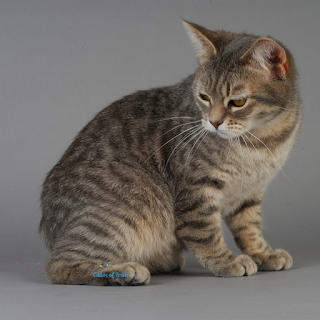Getting A Manx As Part of Your Family
Are you considering a Manx as a pet?
Perhaps you’ve already made a Manx a part of your family! Manx are definitely
unique in that they genetically tend to have tail-lessness or short tails.
Other than that, you would probably recognize them for having robust, muscular
bodies and a short, dense coat. Manx have great personalities for families -
they are gentle, playful, and intelligent. They are ones to bond deeply with
their humans.
As for care, they don't have to be groomed
super often due to their shorter fur. That leaves more time to play! And play
they will. If you haven’t considered where your cat will play, or you feel like
you need a more dedicated space because of problematic behaviors, a catio
provides room for jumping, climbing, and moving about without risks to any of
your indoor shelves’ decorations. A cat will find a way to have a high vantage
point to watch activities from, as it is in their instinctive behaviors, and
this may be troublesome to your family heirlooms or glass vases if you can’t
find a way to give your cat appropriate places to climb. No worries, that’s
what a catio is for! And making that safe outdoor time a part of the daily
routine gives your cat the opportunity to use a catio as their very own space.
Healthwise, these cats need to be allowed
to be active; due to their tail-lessness, they are more prone to spinal
problems, and activity allows them to stay a proper weight. Considered a medium
to large cat, Manx typically have a height of 10–12 inches and a body length of
14–16 inches. They typically weigh between 8–12 lbs, with males of course,
being larger than females usually. One other interesting thing about their
appearance is that they tend to have longer hind legs, which make their rump
appear higher in the air than their front shoulders. They do need to be
monitored a bit for potential issues with their spines due to the same
genetics, but activity also can aid in keeping them fit and healthy.
Manx have a history of being kept on ships
and at farms in the 19th and 20th centuries to help deal with infestations of
mice and rats. They have a strong hunting instinct, and enjoy the outdoors
filled with different sights and sounds. Of course, you don’t want your cat to
be roaming freely about in traffic, around neighbors’ pets, etc. So a catio
allows for your cat to enjoy the outdoors without such a risk. It also keeps
your cat from needlessly hunting songbirds or bringing you potentially unwanted
outdoor small animals as “gifts.”



Comments
Post a Comment